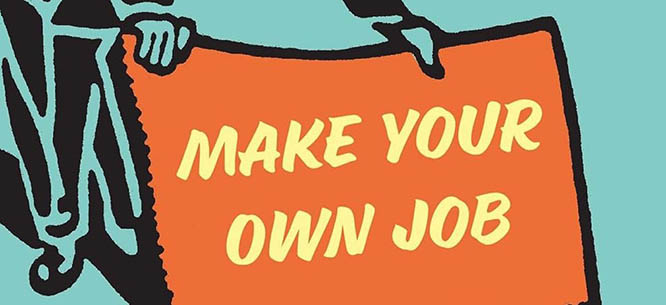
According to the new book, Free Speech and Koch Money: Manufacturing a Campus Culture War, 50 years ago, attorney Lewis Powell — later a Nixon appointee to the U.S. Supreme Court — developed a strategy to increase the number of pro-business speakers on college campuses. As Powell evaluated the post-1960s college milieu, he determined that if conservatives insisted on the right to promote free market ideas to students, academic institutions would capitulate, fearing that if they resisted, they would be tarred as intolerant of diverse points of view.
It was a brilliant realization and one that conservative libertarians have since built on. Free Speech and Koch Money tracks that little-known development, zeroing in on the many ways that right-wing influence has been exerted throughout academia.
At its core, authors Ralph Wilson and Isaac Kamola write, is a fabricated “crisis” in which conservative voices are posited as being silenced by the left. To counter this, deep-pocketed conservatives, with Charles Koch at the helm, have poured money — $256 million between 2005 and 2017 — into cash-strapped public and private colleges and universities. The effort, they write, was a blatant effort to steer curricula and hiring, and funnel students into jobs and internships with conservative groups.
The upshot was the development of an “academic ecosystem in which donor-preferred ideas can thrive. This ecosystem includes its own journals, conferences, professional organizations, and academic centers,” the authors write, complete with an echo chamber of media outlets — including Fox News, The Washington Examiner, The College Fix, RealClearPolitics, The Daily Caller and the Daily Wire — that are eager to promote an array of questionable ideas. Among them, “money is speech, corporations are people, and all regulations are oppressive.”
Wilson and Kamola spoke to Truthout about the book, the growing threat to democracy and the fabricated free speech violations that have roiled U.S. college campuses.
Eleanor J. Bader: Why and when did you begin investigating the Koch network?
Ralph Wilson: In 2011, I was a graduate student at Florida State [University] and learned that the Koch network was donating a few million dollars to the school. It became clear that they were trying to exert influence and control what was being done with their money. For example, they wanted to play a role in the selection of the chair of the Economics Department, and control other hiring decisions and funding for grad students.
Isaac Kamola: I teach political science at Trinity College and in 2017, Campus Reform, a Koch-funded group that pays students to write articles denouncing allegedly left-wing professors, targeted a Trinity faculty member. It was terrible. This led me to get involved with the American Association of University Professors (AAUP). That summer, 2017, I attended the AAUP Institute and met Ralph and Samantha Parsons, who was then a staff person at UnKoch My Campus. Thanks to this meeting, I learned about dark money being funneled to campuses throughout the country by the Koch network, with the goal of undermining the academy.
In addition to Campus Reform, a slew of groups exist to entice students and bring right-wing speakers like Ann Coulter, Candice Owens, Charles Murray, Ben Shapiro and Milo Yiannopoulos to campus. Why do these groups and speakers hold appeal?
Kamola: When I go into a classroom, I reach 20 or 30 students. My goal is to help the students critique power and think about ideas before accepting them. After the course ends, the students go out into the world and live their lives. In contrast, the Kochs and the groups they control, like DonorsTrust and Donors Capital Fund, channel what is taught in class into a political project, linking students with internships or a post-college career. This allows them to transfer the college experience into a practical outcome.
Wilson: I’ve heard Koch-funded professors talk about their recruiting strategies and confess that they look for students who don’t fit in, the loners, the students who are looking for a group activity. The Koch network sees its work as creating an alternative student experience, an academy within the academy. Back in the 1970s, Charles Koch said that while there is an intellectual motivation that conservative libertarians can tap into, they also have hundreds of millions of dollars to throw around. This can be appealing to both students and faculty. They offer a pre-made career path that people apparently find hard to turn down.
Kamola: Yes! To apply for a few thousand dollars from, say, the National Science Foundation, you need to go through an arduous process. But if you go to the Koch-funded Institute for Humane Studies, you can apply for $50,000 by writing three short essays. That can be enticing.
The Koch network charges that conservative ideas are suppressed on many campuses and insists that everyone should be able to say whatever they want, no matter if it offends or endangers people of color, the LGBTQIA community, women, Muslims, Jews or progressives. Groups like the ACLU agree that all speech should be encouraged; that the best way to counter intolerance is to offer more speech. Why do you disagree?
Kamola: This can be tricky. The fundamental problem I have with free speech absolutism — the idea that everyone should have the right to say whatever they want whenever they want — is that it offers one solution for every situation. If you are a student of color or a Jewish student and neo-Nazis storm onto campus, your security will be threatened. This is not something to take lightly; security has to be protected. In addition, the idea that the best way to counter offensive speech, so-called “bad” speech, is with “good” speech, ignores the power dynamic, the fact that some people are marginalized within the academy. When groups come in and scream about free speech absolutism, it essentially buys into a libertarian free market idea that all ideas are equal. This is a fantasy.
The idea of free speech absolutism runs counter to the idea of collective responsibility for one another. Why does the Koch network elevate the individual above all else?
Wilson: Conservative libertarians are working hard to inoculate students against what they see as dangerous collectivism, the idea of being responsible for one another.
Kamola: The elevation of the individual is fundamental to libertarian ideology. The enemy is collectivism. For 50 years, ideas about radical individualism have been pushed into the mainstream: Individual consumer choices are the best way to battle climate change, or more recently, that COVID-19 masks and vaccine mandates violate individual freedom. Conservative libertarians reject the idea that people should look out for one another since it undermines the elevation of the individual.
Why have university administrators, faculty and students been so willing to accept this point of view?
Wilson: One of the driving forces behind the writing of Free Speech and Koch Money was to expose the ways conservative student groups like Campus Reform, Young Americans for Liberty, Young Americans for Freedom, Turning Point USA and the legal groups that threaten to sue universities on their behalf are connected. University officials are only going to be scared by threatened legal action if they believe the supposed violation of free speech is real. The book shows that these campaigns are usually orchestrated by the same small group of people operating from outside the campus to whip up a frenzy around supposed violations of the First Amendment.
Kamola: Administrators hear allegations about the denial of free speech, freak out, and too often think they have to act immediately. They don’t have to panic. Most colleges and universities already have policies on accepting donations, for creating faculty committees regarding academic freedom, and for inviting speakers to campus. They don’t have to accept bullying by outside forces. But this requires the administration to trust the faculty and students to defend existing policies.
Wilson: A lot of the resistance we’ve seen on campuses comes from faculty who are organizing to oppose the Koch network’s influence at their school. Unfortunately, faculty tend not to wield as much power as the administrators who make decisions about accepting money, allowing libertarian economic or political science centers to open, or welcoming provocateurs to speak.
They’re also the ones who are most easily cowed by the threat of negative publicity.
Kamola: In some places where centers have been challenged, the Koch network has opened offices and think tanks off campus. They’ve also started off-campus groups for conservative students when opposition on campus gets too vocal or they feel a need to sidestep constraints.
Have any campuses been able to completely remove Koch money and influence?
Wilson: Yes, but the efforts need to be sustained. At Troy University in Alabama, several professors were heard discussing the ways donors had influenced their work. This was in 2016 and resulted in massive public outrage. The Kochs had funded an economic center at Troy and after the protests erupted, they paused their funding, but the center bounced back after a few years, so this was a temporary victory. It showed us that there is a need for sustained resistance and vigilance on the ground.
Kamola: That’s the idea behind the Kochs’ funding of hundreds of different campus-based economic and political science centers around the country. If controversy erupts in one place, they can go elsewhere. It’s like Whack-a-Mole. Thankfully, there is now a growing awareness of the Kochs and their network — known as the Kochtopus — and we’re hopeful that growing anger over the buying of influence will result in a large, concerted pushback in many more places.
I was horrified to see that many so-called “campus free speech bills” have been passed by statehouses to give conservative student groups the right to discriminate against queer and non-Christian students.
Wilson: Fourteen states have passed bills and they have had an impact. In one case, an anti-abortion group threatened to sue a college if they were not allowed to parade around campus with pictures of bloody fetuses. The Koch network is like a pump mechanism, churning out legislation and then dangling grants that can be pulled at any time if the right strings are not pulled.
Kamola: This has had a cascading effect, with legislation to restrict the teaching of critical race theory passing in 28 states. The effort to dictate what goes on in the classroom is the goal of these funders. A vast number of groups, including the American Legislative Exchange Council (ALEC), advances model legislation. There’s also the LIBRE Initiative, The American Energy Alliance, the State Policy Network and many, many more. As we wrote in the book, since the 1970s, Charles Koch has seen universities as student recruitment sites and places to groom libertarian faculty members and train the next generation of policy wonks.
Furthermore, the right understands that it is easier to organize a hierarchy than it is to organize a democracy and they operate with a degree of revolutionary furor that the left tends to misunderstand or underestimate. We need to take this fervor seriously. Conservative libertarians are hellbent on transforming society with their autocratic world view. They don’t believe education is a public good, but instead, see it as a private good that individuals should pay for themselves.
So, how do we fight back?
Wilson: There’s no single solution to protecting free speech or removing the Koch network from campus. The best policy is to let the academy regulate itself — to let faculty governance work and let committees investigate and formulate recommendations that the administration takes seriously — to protect the safety and speech of faculty and students.
Kamola: We have to remember that the manufactured outrage over free speech is not something that deserves attention. Rather, we need to pay attention to the organizations that are generating the outrage and ask why they’re doing this.
Wilson: The guiding principle in our research was to follow the money. In order to track these groups, we used the Corporate Genome Project database. The project documents how the Koch networks and other corporate donors manufacture political narratives and advocate public policies in their interest. This can help folks better understand what we’re up against and help explain what’s happening on campuses across the country. This is the best tool we have to effectively resist the influence of big money on society.
This interview has been lightly edited for clarity.
This post was originally published on Latest – Truthout.







